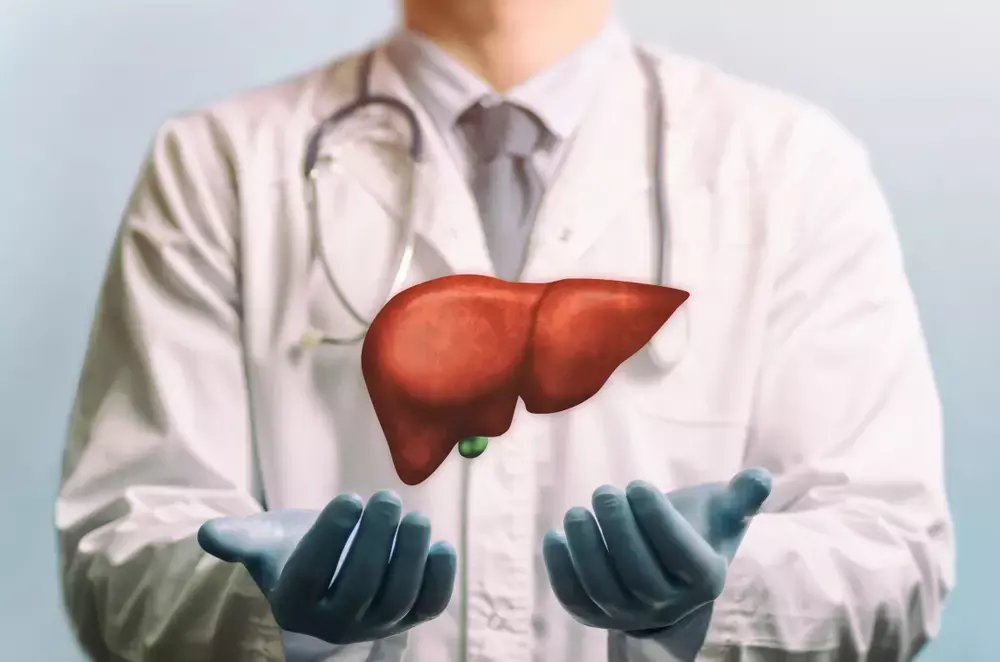- Home
- Medical news & Guidelines
- Anesthesiology
- Cardiology and CTVS
- Critical Care
- Dentistry
- Dermatology
- Diabetes and Endocrinology
- ENT
- Gastroenterology
- Medicine
- Nephrology
- Neurology
- Obstretics-Gynaecology
- Oncology
- Ophthalmology
- Orthopaedics
- Pediatrics-Neonatology
- Psychiatry
- Pulmonology
- Radiology
- Surgery
- Urology
- Laboratory Medicine
- Diet
- Nursing
- Paramedical
- Physiotherapy
- Health news
- Fact Check
- Bone Health Fact Check
- Brain Health Fact Check
- Cancer Related Fact Check
- Child Care Fact Check
- Dental and oral health fact check
- Diabetes and metabolic health fact check
- Diet and Nutrition Fact Check
- Eye and ENT Care Fact Check
- Fitness fact check
- Gut health fact check
- Heart health fact check
- Kidney health fact check
- Medical education fact check
- Men's health fact check
- Respiratory fact check
- Skin and hair care fact check
- Vaccine and Immunization fact check
- Women's health fact check
- AYUSH
- State News
- Andaman and Nicobar Islands
- Andhra Pradesh
- Arunachal Pradesh
- Assam
- Bihar
- Chandigarh
- Chattisgarh
- Dadra and Nagar Haveli
- Daman and Diu
- Delhi
- Goa
- Gujarat
- Haryana
- Himachal Pradesh
- Jammu & Kashmir
- Jharkhand
- Karnataka
- Kerala
- Ladakh
- Lakshadweep
- Madhya Pradesh
- Maharashtra
- Manipur
- Meghalaya
- Mizoram
- Nagaland
- Odisha
- Puducherry
- Punjab
- Rajasthan
- Sikkim
- Tamil Nadu
- Telangana
- Tripura
- Uttar Pradesh
- Uttrakhand
- West Bengal
- Medical Education
- Industry
Norepinephrine useful rescue therapy in hepatorenal syndrome in non ICU setting: Study

Vasoconstrictor namely norepinephrine can be used as rescue therapy and as a potential bridge to liver transplantation, suggests a study published in the American Association for the Study of Liver Disease (AASLD)
Vasoconstrictors are the treatment of choice for the hepatorenal syndrome (HRS).
A group of researchers from U.S.A evaluated the real-life effectiveness of a sequential vasoconstrictor regimen of midodrine–octreotide followed by norepinephrine in a nonintensive care unit (non-ICU) setting in the United States, where terlipressin is not available.
The diagnosis of hepatorenal syndrome (HRS) and definitions of response to therapy was based on 2015 guidelines from the International Club of Ascites. In adult patients with HRS without partial or full response to oral midodrine and subcutaneous octreotide,norepinephrine was administered at a starting dose of 5 mcg/minute, with a goal to achieve a mean arterial pressure (MAP) of 10 mm Hg above baseline. The researchers assessed predictors of response and treatment outcomes.
The results of the study are as follows:
A total of 61 patients were administered midodrine and octreotide for the treatment of HRS, with a 28% response rate.
The median MELD-Na (Model for End-Stage Liver Disease–sodium) the score was 30.
Responders were more likely to have alcohol-related liver disease and lower Acute-on-Chronic Liver Failure (ACLF) grade.
Of the non-responders, 20 were then administered norepinephrine, of whom 45% achieved full or partial response.
Achieving a MAP increase of ≥10 mm Hg was associated with a greater probability of response.
Patients who responded to norepinephrine experienced improved transplant-free survival at 90 days; 5 of 20 patients experienced norepinephrine treatment-related adverse events, namely arrhythmias.
Thus, the researchers concluded that norepinephrine can be effectively used in a non-ICU setting as rescue therapy in patients who have not responded to midodrine and octreotide. Based on these data, we propose a practical stepwise algorithm for vasoconstrictor therapy to manage HRS in situations where terlipressin is not an option.
Reference:
Feasibility and Effectiveness of Norepinephrine Outside the Intensive Care Setting for Treatment of Hepatorenal Syndrome by Kwong A et. al. published in the AASLD.
https://doi.org/10.1002/lt.26065
Dr. Shravani Dali has completed her BDS from Pravara institute of medical sciences, loni. Following which she extensively worked in the healthcare sector for 2+ years. She has been actively involved in writing blogs in field of health and wellness. Currently she is pursuing her Masters of public health-health administration from Tata institute of social sciences. She can be contacted at editorial@medicaldialogues.in.
Dr Kamal Kant Kohli-MBBS, DTCD- a chest specialist with more than 30 years of practice and a flair for writing clinical articles, Dr Kamal Kant Kohli joined Medical Dialogues as a Chief Editor of Medical News. Besides writing articles, as an editor, he proofreads and verifies all the medical content published on Medical Dialogues including those coming from journals, studies,medical conferences,guidelines etc. Email: drkohli@medicaldialogues.in. Contact no. 011-43720751


